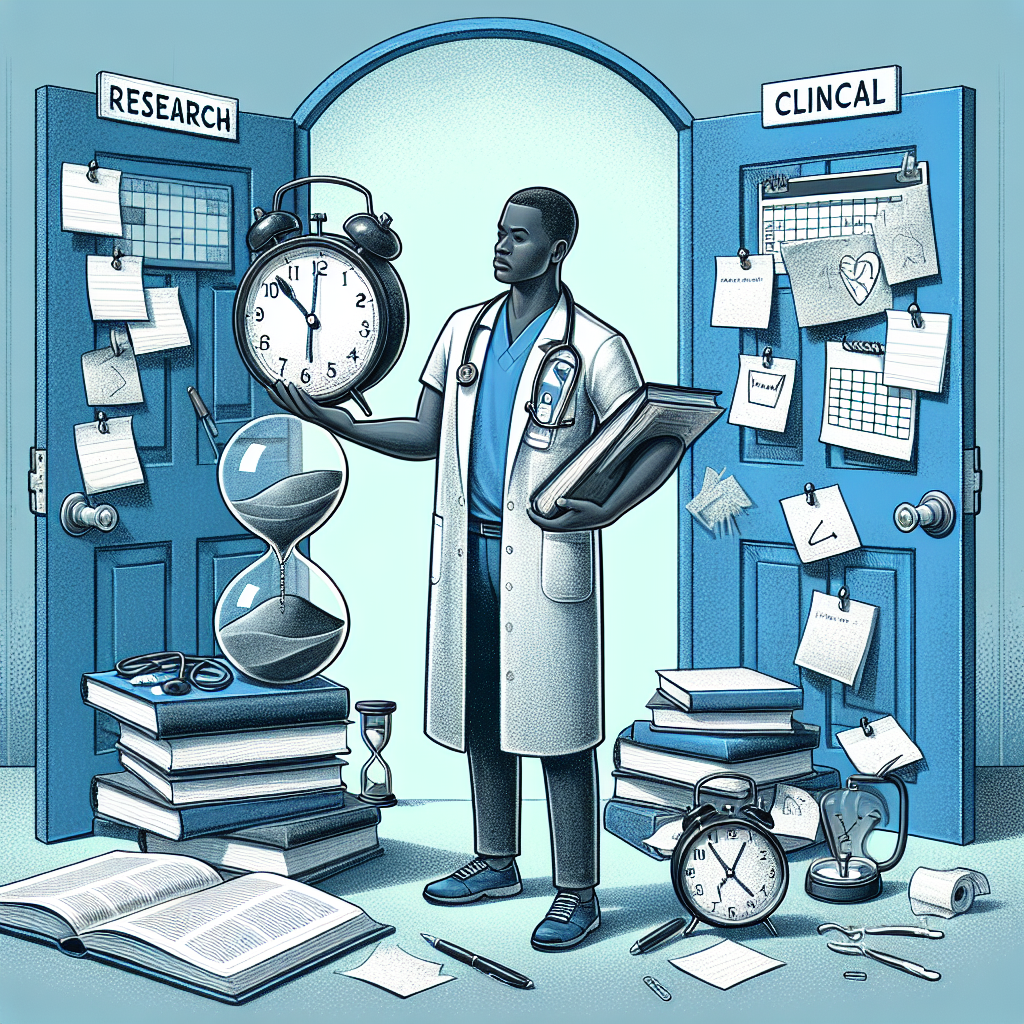Being a medical resident is undoubtedly one of the most challenging yet rewarding phases of a physician’s career. With the demands of long work hours, intense patient care, and the need to keep up with studies, effective time management is essential. Below are some essential time management tips tailored specifically for residents who want to thrive both at work and in their studies.
Understand Your Priorities
The Importance of Prioritization
As a resident, you will face countless responsibilities. Some tasks will be more pressing than others, and understanding this hierarchy is vital. Take some time every week to evaluate your tasks and categorize them based on urgency and importance. An effective method is the Eisenhower Matrix, which divides tasks into four categories:
- Urgent and Important: Tasks that should be done immediately.
- Important but Not Urgent: Tasks that can be scheduled for later.
- Urgent but Not Important: Tasks that can be delegated.
- Neither Urgent nor Important: Tasks that can be eliminated.
By knowing where your focus should lie, you will not only be more productive but will also feel less overwhelmed.
Set Realistic Goals
The SMART Criteria
When faced with myriad responsibilities, setting achievable goals becomes crucial. Using the SMART criteria—Specific, Measurable, Achievable, Relevant, and Time-bound—can help you formulate clear objectives. For instance, instead of simply aiming to “study cardiology,” specify your goal as “review the latest cardiology guidelines for 30 minutes every evening.”
Break It Down
Large projects can often seem daunting. Breaking them into smaller, manageable parts can make them more approachable. Set milestones and reward yourself for reaching them. This not only makes the task feel less intimidating but also keeps you motivated throughout your residency.
Create a Schedule
Use Digital Tools to Your Advantage
A well-structured schedule is the backbone of effective time management. Utilize digital calendars and task management apps to centralize your commitments. Google Calendar, Todoist, or Trello are excellent tools that allow you to keep track of your studies, shifts, and personal commitments.
Block Time for Study
Incorporate dedicated study blocks into your schedule, just as you would for your clinical duties. Consistency is key. If you can manage to allocate a few hours each week specifically for study-time, you will find yourself better prepared and less stressed during exam periods.
Learn to Say No
Establish Your Boundaries
As a resident, you might feel inclined to accept every additional task or role that comes your way. However, this can lead to burnout. Learning to say no is not only a vital skill for maintaining your health but also ensures you can focus on your priorities.
Delegate When Possible
Don’t hesitate to seek help or delegate tasks when applicable. Share responsibilities with peers or seek guidance from mentors. Remember, collaboration can lighten the load for everyone involved.
Stay Organized
Keep Your Workspace Clutter-Free
A neat working environment can significantly improve your focus and productivity. Organize your study materials, patient charts, and workspaces to reduce distractions. Setting aside a few minutes each day to tidy your area can lead to a more productive environment.
Utilize Checklists
Checklists can be a powerful way to stay organized. Whether you’re managing your daily tasks or preparing for a big exam, having a checklist will ensure that you do not overlook anything important.
Make Time for Yourself
Prioritize Self-Care
In the midst of your commitment to work and studies, do not forget to take care of your mental and physical health. Setting aside time for exercise, relaxation, or hobbies is essential for replenishing your energy and maintaining a healthy work-life balance.
Mindfulness and Stress Management
Adopting mindfulness practices, such as meditation or deep-breathing exercises, can significantly alleviate stress. Just a few minutes a day can help you regain focus and bring clarity to your tasks.
Seek Mentorship and Support
Don’t Go It Alone
Always remember that you’re not on this journey alone. Seek out mentors who can offer invaluable advice on managing time and responsibilities. Support from fellow residents, friends, and family can also help alleviate the pressure during particularly demanding times.
Conclusion
Mastering time management during residency may take time, but with practice and commitment to the strategies mentioned above, success is within your reach. Prioritization, realistic goal-setting, and vigilance about self-care will not only enhance your performance at work and in your studies but also contribute to a fulfilling and balanced life as a resident. Embrace this challenging phase, and you’ll emerge ready to tackle the complexities of your medical career.


